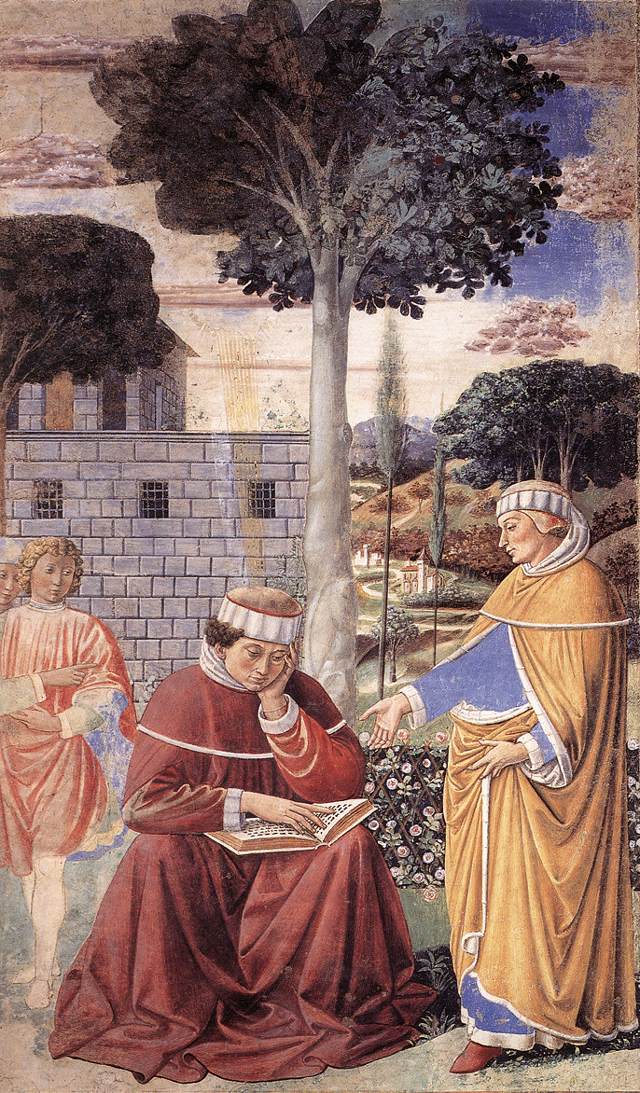Memorial of St. Augustine (28 Aug 2018)
Homily of Fr. Paul Panaretos, S.J. on 8-day Directed Retreat
Bookend Virtues
Early in the retreat Bill encouraged that no one outdoes God’s generosity. I hope each of us has has been drawing on God’s generosity to us. St. Augustine reminds me in the final hours of retreat that it helps to summon another virtue: patience. We want to stay on retreat and not miss what God desires we enjoy. It is all too easy to visit what awaits us at home. Visiting what awaits me on re-turn from retreat does not affect what awaits me; only on my return can I do anything. Patience helps me recognize things as they are; and frees me to let God continue to shape me for life after retreat.
 Augustine received the gift of patience in part by inheriting it. At he first did not know patience was part of his DNA, so to say. Remembering his mother yesterday reminds us of her patience. She longed for her son to become a Christian. Augustine recalled her desire that she expressed to him near the end of her life: “One thing only there was for which I desired to linger in this life: to see you a Catholic Christian before I died.”1
Augustine received the gift of patience in part by inheriting it. At he first did not know patience was part of his DNA, so to say. Remembering his mother yesterday reminds us of her patience. She longed for her son to become a Christian. Augustine recalled her desire that she expressed to him near the end of her life: “One thing only there was for which I desired to linger in this life: to see you a Catholic Christian before I died.”1
Persevering patience in his DNA helps us appreciate that Augustine could say with no tinge of regret: “Late have I loved you, O Beauty so ancient and so new, late have I loved you.”2 No regret; his words communicate refreshing fulfilment.
God was not totally off Augustine’s radar. He longed for beauty and goodness; finding it frustrated him. Not so different from us. Augustine again: “I looked for a way to gain the strength I needed to enjoy you, but I did not find it until I embraced the mediator between God and humans, the man Christ Jesus, who is also God, supreme over all things and blessed for ever.”3 “Embracing Jesus Christ” echoes a modern conversion-phrase: “accepting Jesus as one’s saviour.” Or, Pope Francis’ favoured verb regarding Jesus and others: encounter. Frustrated—even refusing—to embrace, accept or encounter Jesus does not frustrate Jesus’ patience with us. The more we savour Jesus’ patience with us, the more we live by Jesus’ care and less by our compulsions.
Jesus patiently called you to retreat and you accepted. Jesus patiently is with you on retreat and you are responding. Jesus called you to share and possess his life now—to use St. Paul’s phrase—and you are responding. None of us has been deceived; we have been encouraged. Continue to savour what you have received. To savour patiently enjoys more deeply what our triune God waits patiently to offer us on retreat.
__________
__________
Wiki-image Conversion of Augustine PD-US
_-_James_Tissot_-_overall.jpg)
_-_James_Tissot.jpg)
_-_James_Tissot.jpg)
.jpg)